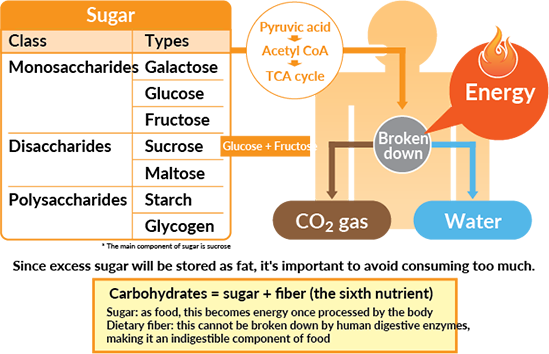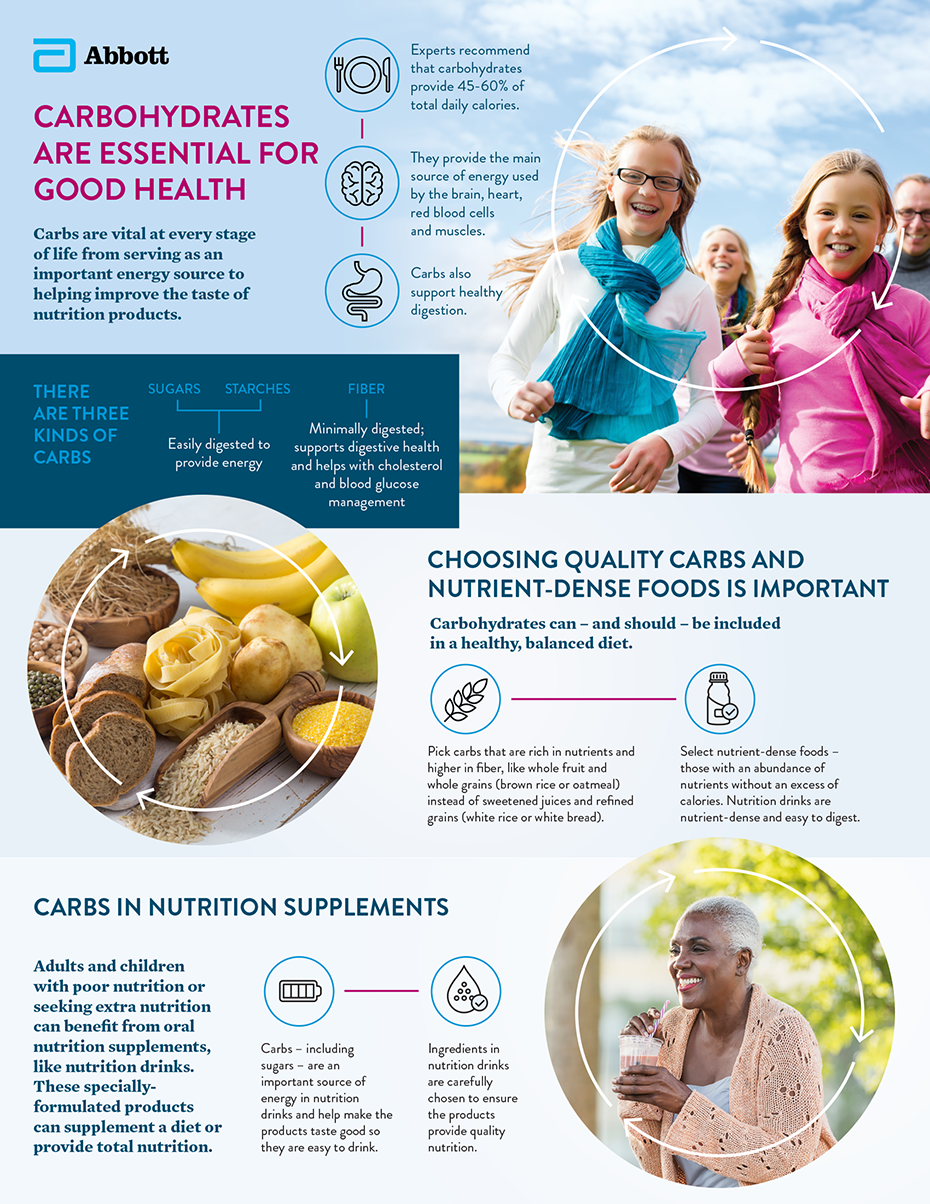Carbohydrates are a crucial component of a healthy diet. They are one of the main macronutrients that provide energy to the body, making them an essential part of our daily food intake.
What Are Carbohydrates?
Carbohydrates are organic compounds that consist of carbon, hydrogen, and oxygen. They are found in a wide variety of foods, including fruits, vegetables, grains, and dairy products.
Types of Carbohydrates
There are two main types of carbohydrates – simple carbohydrates and complex carbohydrates.
| Type | Description | Food Sources |
|---|---|---|
| Simple Carbohydrates | These are composed of one or two sugar units. They are quickly digested and provide a rapid source of energy. | Table sugar, honey, fruit juices, candy |
| Complex Carbohydrates | These are made up of many sugar units linked together. They provide sustained energy and are rich in fiber and nutrients. | Whole grains, vegetables, legumes, nuts |

Credit: www.otsuka.co.jp
Importance of Carbohydrates
Carbohydrates play several important roles in the body:
- Energy Source: Carbohydrates are the primary source of energy for the body. When consumed, they are broken down into glucose, which is used to fuel our cells and provide energy for all bodily functions.
- Brain Function: Glucose from carbohydrates is the main fuel for the brain. It is essential for concentration, focus, and cognitive function.
- Physical Performance: Carbohydrates fuel our muscles during exercise and help improve endurance and performance.
- Digestive Health: Complex carbohydrates are a good source of dietary fiber, which aids in digestion, prevents constipation, and promotes a healthy digestive system.
- Nutrient Absorption: Carbohydrates are often found in foods that are rich in essential vitamins and minerals, aiding in their absorption and utilization in the body.
Understanding the Glycemic Index
The glycemic index (GI) is a measure of how quickly carbohydrates in food raise blood sugar levels. Foods with a high GI cause a rapid spike in blood sugar, while those with a low GI result in a slower and more sustained increase in blood sugar.
Choosing carbohydrates with a low or moderate GI can help maintain steady blood sugar levels, prevent energy crashes, and promote long-lasting energy.

Credit: www.nutritionnews.abbott
Healthy Carbohydrate Sources
It’s important to choose healthy carbohydrate sources for optimal nutrition. Here are some examples:
- Whole Grains: Opt for whole grain bread, brown rice, quinoa, and oatmeal for a good dose of complex carbohydrates, fiber, and nutrients.
- Fruits and Vegetables: These provide a mix of simple and complex carbohydrates, along with vitamins, minerals, and antioxidants.
- Legumes: Beans, lentils, and chickpeas offer a blend of protein, fiber, and complex carbohydrates.
- Dairy: Milk and yogurt contain lactose, a natural sugar that provides a source of carbohydrates along with essential nutrients like calcium and protein.
Carbohydrates and Weight Management
Carbohydrates often get a bad rap when it comes to weight management. However, it’s not the carbohydrates themselves that cause weight gain, but rather the type and quantity that we consume.
Choosing the right carbohydrates, such as whole grains, fruits, and vegetables, can actually aid in weight management by providing satiety, fiber, and essential nutrients while keeping calorie intake in check.
Frequently Asked Questions Of Why Are Carbohydrates Important: The Key To Optimal Energy And Nutrition
Why Are Carbohydrates Important For Our Overall Health?
Carbohydrates are essential as they provide fuel for our bodies, support brain function, and aid in muscle recovery after exercise.
What Are The Main Sources Of Carbohydrates?
Main sources of carbohydrates include grains, fruits, vegetables, and legumes, which provide important nutrients such as fiber, vitamins, and minerals.
How Do Carbohydrates Affect Our Energy Levels?
Carbohydrates are the body’s primary source of energy. They are broken down into glucose, which fuels our cells and powers our physical activities.
Can Carbohydrates Help With Weight Management?
Including carbohydrates as part of a balanced diet can support weight management by providing satiety and preventing overeating.
Conclusion
Carbohydrates are an indispensable part of a balanced diet and play a crucial role in maintaining overall health and well-being. Choosing the right types of carbohydrates and consuming them in moderation is key to reaping their numerous benefits.
By understanding the different types of carbohydrates, their impact on energy levels, and their role in various bodily functions, we can make informed choices to support our health and vitality.
